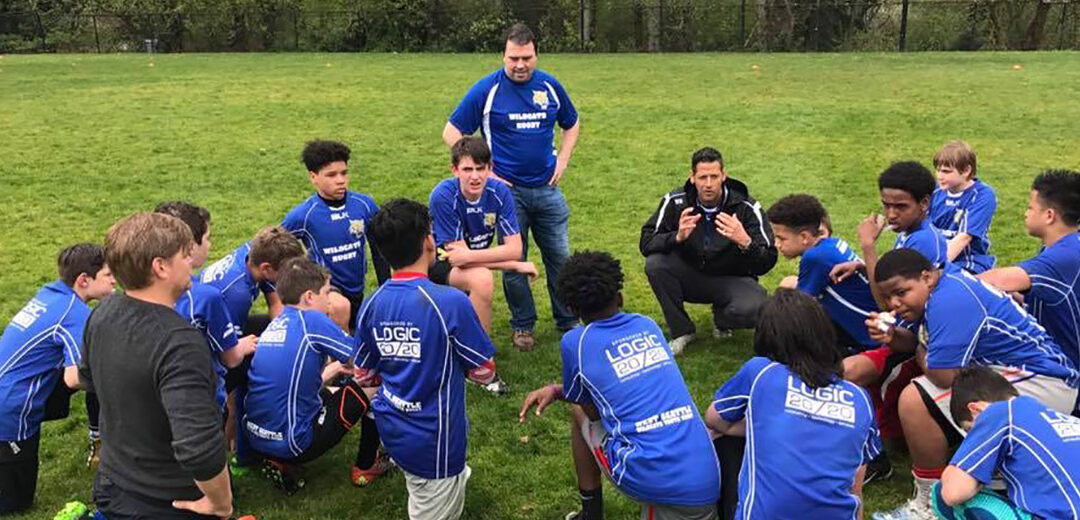We’ve all encountered pivotal growth moments in our career where we’ve had multiple opportunities available. Would it be better to seek a promotion, transition to a new field, or change jobs? There is no clear roadmap for each individual’s journey. It’s even more challenging to embark on those journeys on your own, without guidance. So how do you make important decisions?
In my mid-30’s, I ventured off into entrepreneurship and spent 6 years co-building a consulting company in Seattle. Then at age 40, I had a big opportunity to buy out my partner’s portion of the company. I had so many questions, from “should I?” to “what are the risks?”. I felt very alone and I didn’t know what to do, so I turned to my network of mentors – eight people ranging from a Ph.D. to a self-made billionaire. My mentors didn’t give me the answer, but each person contributed 10-15% of a final answer. I had to stitch the pieces together, combining their advice with my own deep knowledge about my business, to come to my own conclusions.
I strongly believe that you can’t be a mentee without being a mentor. Amongst my list of 10-15 mentees at any given time, I’ve had the great fortune of mentoring an MLS soccer player transitioning to the commercial world, a former white house communications director moving to the technology sector, an apache helicopter pilot with 4 tours of Afghanistan and Iraq transitioning into civilian life, and a Rainier Scholar (a leadership program that supports low-income students of color in the Seattle area) transitioning from home life to college life. In my personal life, I have coached 10 years of youth soccer and rugby teams.
It’s amazing how much I’ve learned from the people I mentor. These experiences have given me a breadth of insights into other outlooks and journeys. These insights, in turn, strengthen my own understanding of the world. The experience also keeps me humble. No 13-year-old athlete gives a lick who you are in the professional world.
Seek wisdom
Our species has survived and thrived because more experienced members teach and guide the youth. Though you may not have labeled them as mentors, you can probably remember the impact of key individuals throughout your childhood and adolescence. Family members, teachers, coaches – people who whole-heartedly supported you, taught you about the world and guided your decision making.
In professional life, the most successful people seek mentorship to guide them. Personally, I find that it’s impossible to understand all the ins and outs of business at each pivotal part of its lifecycle, especially when just starting out. Mentorship was my key to learning and filling the experience gaps I had. Seeking guidance should never be seen as weak, but rather it displays a yearning to improve, evolve, and achieve. Engaging with a mentor provides:
1. Honesty and humility
A good mentor will offer you their honest opinion based on your long and short-term goals. To achieve true benefit from the engagement, a mentee should be humble and open to receiving advice. On the flip side, a mentor should not be offended if the mentee does not take advice.
2. Perspective
We each have our own unique experiences to draw on and bring to the mentor/mentee relationship. With a different perspective, a mentor may see something you can’t about your own challenges and journey. Because each mentor offers a different perspective, I’ve built a network of people with varying backgrounds and professional experience; the multiple viewpoints help me visualize a path to follow.
3. Business acumen
Depending on the relationship, a mentor may choose to impart wisdom, lead by example, or both. Mentees can learn business skills from observing and talking with their mentors, many of which are difficult to learn without experience or guidance.
Good mentors guide and help you unlock your own potential based on their own past successes and failures. Choose mentors who have the goals of empowering their mentee while being brutally honest when necessary. It’s a balancing act that’s vital to the relationship. I recommend that when you choose to enter a mentor/mentee relationship, set a check-in cadence and, if possible, meet face-to-face as much as you can.
Mentorship = growth
Without the support and advise of mentors over the years, I doubt that I would have had the assurance or business acumen to be where I am today. My mentors have helped me see around corners and pressure-test my potential decisions. For that reason, I recommend my employees engage in mentorships. Every person at every career level has plenty to learn from experienced colleagues and outside business connections.
For a successful mentorship, connect and collaborate with colleagues and managers. You don’t have to take all of the advice (or any of it). What’s important is that you listen to and learn from other perspectives with an open mind. Embrace any opportunity to learn and improve. Seek advice from those around you. Lastly, become a mentor yourself – it’s amazing what you will learn.

